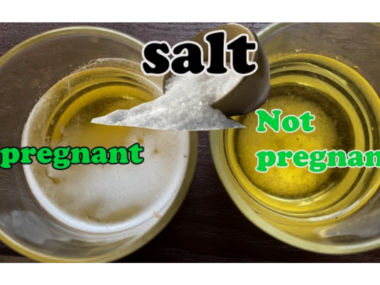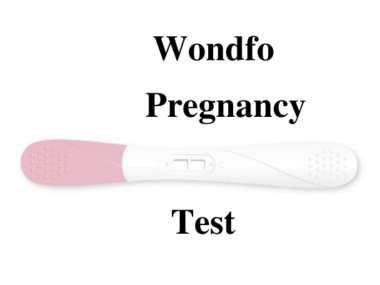Does Drinking Make You Gain Weight
The connection between alcohol consumption and weight gain has been a topic of debate for years. With social gatherings and celebrations often involving alcoholic beverages, it’s essential to understand the impact of drinking on our body weight and overall health. In this blog post, we’ll explore the relationship between drinking alcohol and weight gain, uncovering the factors that contribute to potential weight gain, and offering tips on how you can maintain a balanced lifestyle while enjoying the occasional drink.
The Caloric Content of Alcohol
One of the primary reasons why drinking is associated with weight gain is its caloric content. Alcohol contains calories, and these calories can add up quickly, especially when consumed in large quantities. Each gram of alcohol provides approximately 7 calories, making it a calorie-dense substance compared to protein and carbohydrates (4 calories per gram) and slightly less calorically dense than fat (9 calories per gram).
Mixed Drinks and Sugary Beverages
Many alcoholic beverages, such as cocktails and beer, are often mixed with sugary ingredients, leading to even more caloric intake. For instance, a typical margarita or mojito can contain added sugars or syrups, increasing the overall calorie count. Moreover, these drinks might not provide the same satiety as solid foods, leading to overeating or choosing unhealthy food options while under the influence.
Metabolism and Fat Storage
Beyond the caloric content of alcohol, its effects on metabolism and fat storage also play a role in weight gain. When alcohol is consumed, the body prioritizes metabolizing it over other nutrients. This means that fat burning is temporarily put on hold, leading to an increased likelihood of fat storage. Additionally, chronic alcohol consumption can impair liver function, further affecting the body’s ability to metabolize fats effectively.
Alcohol and Appetite Regulation
Drinking alcohol can disrupt the body’s natural appetite regulation mechanisms. Studies have shown that alcohol intake can lead to an increase in appetite and a decrease in inhibitions, making it more challenging to resist high-calorie, unhealthy food choices. This combination can contribute to overeating and the consumption of calorie-dense foods, leading to weight gain over time.
Dehydration and Water Retention
Alcohol is a diuretic, which means it promotes fluid loss through increased urination. Consequently, it can lead to temporary dehydration, causing the body to retain water to compensate. This water retention can result in bloating and temporary weight gain, giving the impression of increased body fat. However, it’s important to note that this is not actual fat gain but rather a fluctuation in water levels.
Read >>> Can Alcohol Affect a Pregnancy Test
Alcohol’s Impact on Sleep
Quality sleep is crucial for maintaining a healthy weight and overall well-being. Alcohol consumption can disrupt sleep patterns, leading to poorer sleep quality and less restorative rest. Sleep deprivation can affect hunger hormones like ghrelin and leptin, leading to increased hunger and reduced feelings of fullness. This, in turn, can contribute to weight gain and difficulty losing weight.
Balancing Alcohol Consumption and Weight Management
While excessive alcohol consumption can lead to weight gain and various health issues, moderate drinking can be part of a balanced lifestyle. If you choose to drink, here are some tips to help you maintain a healthy weight:
- Moderation: Limit your alcohol intake to moderate levels. For most individuals, this means up to one drink per day for women and up to two drinks per day for men.
- Mindful Choices: Opt for lower-calorie alcoholic beverages such as light beer, wine, or spirits mixed with low-calorie mixers like soda water or fresh fruit juice (in moderation).
- Hydration: Drink plenty of water alongside alcoholic beverages to stay hydrated and minimize the effects of dehydration.
- Set Limits: Set clear limits for alcohol consumption and adhere to them. Avoid binge drinking and excessive consumption in a single sitting.
- Plan Ahead: If you know you’ll be drinking at a social event, plan your meals and snacks accordingly to maintain a balanced diet.
- Stay Active: Regular physical activity is essential for weight management. Incorporate exercise into your routine to offset any extra calories from alcohol consumption.
Read also>>>Diet Plan For Weight Gain
Does alcohol cause belly fat?
Yes, alcohol consumption can contribute to the accumulation of belly fat. When you consume alcohol, your body processes it as a priority over other nutrients. As a result, the metabolism of fats is temporarily put on hold, leading to an increased likelihood of fat storage. This is particularly concerning when it comes to abdominal fat, as the body tends to store excess fat in the abdominal area.
Read >>> How to lose weight in less than two weeks
There are several reasons why alcohol can cause belly fat:
- High Caloric Content: Alcohol is calorie-dense, providing approximately 7 calories per gram. Regular consumption of alcohol, especially in large quantities, can lead to an excessive calorie intake, which, if not burned off through physical activity, will be stored as fat in the body, including the abdominal region.
- Increased Appetite: Alcohol can disrupt the body’s natural appetite regulation mechanisms, leading to an increase in appetite and decreased inhibitions. This can result in overeating and choosing unhealthy, calorie-dense foods, contributing to weight gain and belly fat accumulation.
- Impact on Hormones: Chronic alcohol consumption can influence hormone levels, leading to imbalances that promote fat storage, particularly in the abdominal area. For example, excessive alcohol intake can increase cortisol levels (the stress hormone), which is associated with the accumulation of visceral fat around the organs in the abdomen.
- Liver Function: Metabolizing fat is a critical function performed by the liver. Excessive alcohol consumption can lead to liver damage or fatty liver, impairing its ability to process fats effectively. This can lead to fat accumulation, especially in the abdominal region.
- Insulin Sensitivity: Heavy alcohol consumption can reduce insulin sensitivity, leading to higher insulin levels in the bloodstream. Elevated insulin levels are associated with increased fat storage, especially in the abdominal area.
It’s important to note that not everyone who drinks alcohol will automatically develop belly fat. Genetics, lifestyle, overall diet, and physical activity levels also play significant roles in determining how alcohol affects an individual’s body composition. Some people may be more prone to developing belly fat from alcohol consumption than others.
Conclusion
While drinking alcohol can contribute to weight gain, it’s important to understand that moderation is key. A balanced lifestyle that includes mindful alcohol consumption, coupled with a healthy diet and regular exercise, can help you maintain a healthy weight and overall well-being. Understanding the impact of alcohol on your body and making informed choices will empower you to enjoy occasional drinks without compromising your weight management goals. It is essential to seek personalized advice and guidance on maintaining a healthy lifestyle from a healthcare professional.
Read >>> What Causes Red Spots on The Skin






